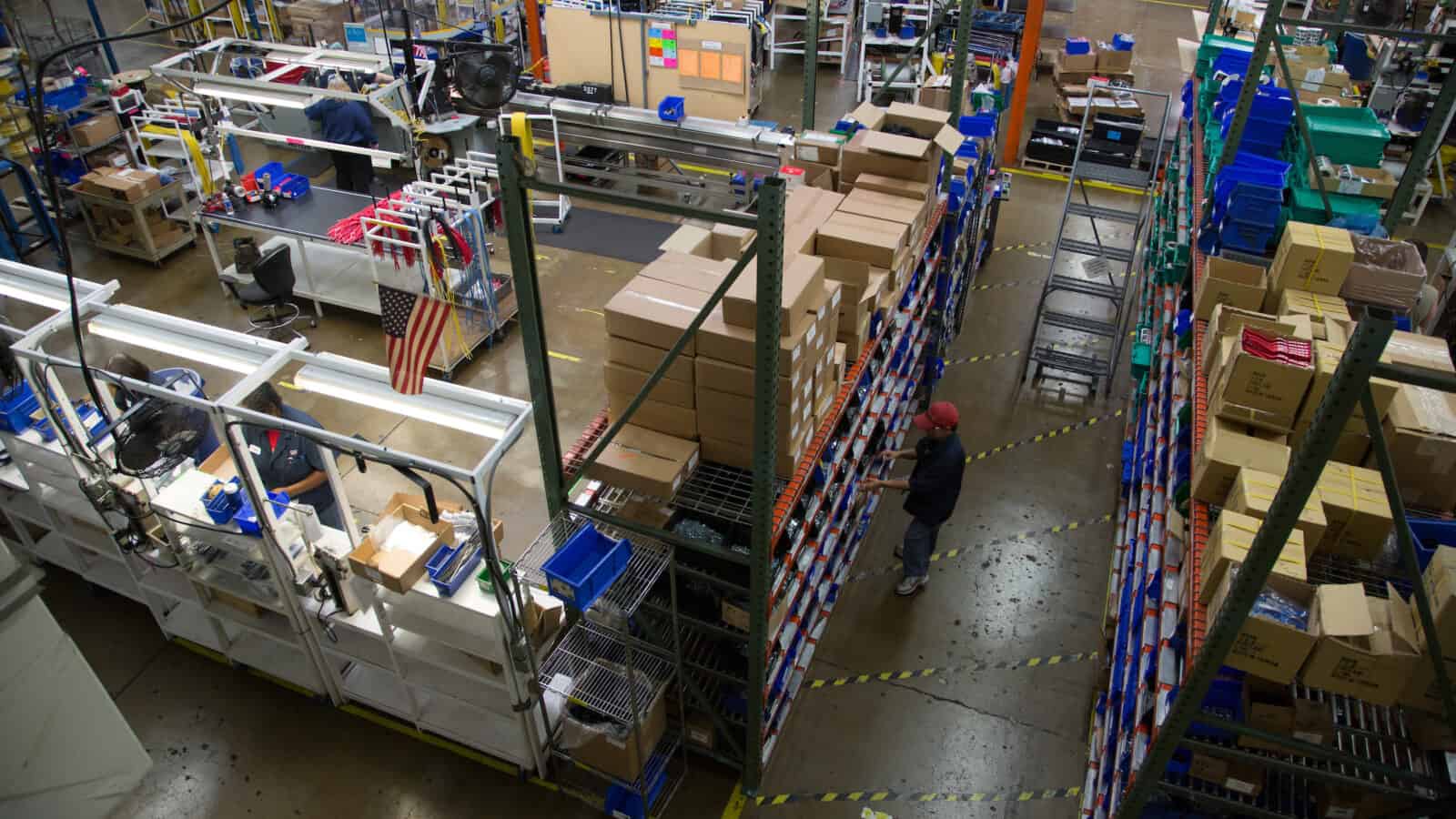A One-Woman Workforce Solution: Meet Toyotetsu’s Leslie Cantu

Leslie Cantu has an unusual but effective method of stress reduction: cuddling with bovines.
“You can’t stay stressed or frustrated when you have a cow licking you on the cheek,” laughed Toyotetsu’s assistant vice president of administration.
Ranch life: Living on a ranch south of San Antonio, Texas, with 13 dogs, 15 cats, five miniature horses, multiple sheep and three newborn lambs might sound to others like a lot of work, but to Cantu, it is indeed a method of decompression.
- “I have five children and two grandbabies, and spending time with them out on the ranch, just being able to take care of the animals and enjoy time with the kids, it’s rewarding, it’s relaxing,” said Cantu.
- Life on the ranch sounds busy, but it’s nothing compared to work life for Cantu, a 2023 Honoree of the Manufacturing Institute’s Women MAKE Awards, which recognize top female talent in the manufacturing industry. She’s involved in a dizzying array of workforce programs both at the company and outside of it.
Finding FAME: Cantu, the first woman to be named an assistant vice president at the global automotive parts manufacturer, spends a lot of time making a difference for the company’s workforce.
- In 2016, her first year on the job, she helped Toyotetsu open the Federation for Advanced Manufacturing Education’s first Texas chapter, TX FAME – Alamo. Today, she serves as the chapter president.
- “Through FAME, we’ve really been able to build that multiskilled-technician pipeline to make sure we can meet those critical skills needed for our business,” Cantu said of the workforce development initiative for high school graduates, which was founded by Toyota and is now operated by the MI (the NAM’s 501(c)3 workforce development and education affiliate).
Seeking diversity: Cantu also helped Toyotetsu form a partnership with the Texas Workforce Commission and the local workforce development board to create a 12-week manufacturing apprenticeship program—the first of its kind in Texas—for individuals with disabilities. The inaugural class graduated in January.
- “It’s programs like this and FAME that help us find unique ways to fill those skills gaps and focus on diversifying the workforce,” she said. “There’s a lot to be said for diversifying the workforce, [including] improved morale and retention.”
A second chance: In 2018, in another bid to deepen Toyotetsu’s talent pool, Cantu spearheaded the launch of a second chance hiring initiative in partnership with the local county’s economic development board. The project now consists of seven manufacturers, all of whom regularly hire formerly incarcerated individuals—with great results.
- “Toyotetsu alone has hired about 140 ex-offenders and had tremendous success with that,” said Cantu.
- “Analyzing our data and metrics, we’ve been able to see that our second chance population has better performance and better retention than those who come to us through traditional recruiting. [Second chance] has effectively become a go-to, best practices strategy for us.”
Playing to strengths: Cantu credits some of her success in strengthening Toyotetsu’s workforce to her natural ability to think creatively.
- “As we continue to work through the national skills-force gap, hiring and COVID-19, it’s become important to think outside the box … to see how we could build our talent pipeline,” Cantu said.
- “That’s one of my strengths, tapping into those resources. Part of that is knowing what resources are out there, and thankfully, I’ve got a great boss and corporate office that support community involvement,” she added.
And if that wasn’t enough … Cantu is the chair of Workforce Solutions Alamo, and she sits on the board of the Texas Workforce Commission’s Adult Education & Literacy Advisory Committee and on the advisory board of a local high school.
The last word: Cantu has some encouraging words for women looking to follow in her (very energetic) footsteps:
- “Oftentimes there’s an image of manufacturing [as being] for men, or [that] it’s dark, it’s dirty, it’s dangerous. And that’s not what manufacturing is. There’s a lot of opportunity to use the skills that women bring to the table: multitasking, transferable skills,” she says.
- “It’s incredibly important that we mentor women thinking about careers in manufacturing, tell our stories and share the journey so that we can encourage others following the same path.”



